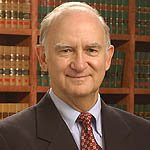MELANCHOLIA 3.3****
This film opens with the end of the world. A massively large planet named Melancholia, whose path through space has been blocked from our view by the sun, smashes into the much smaller Earth, obliterating it and all on it. There are no Bruce Willis-detonated nukes and no space colony of the elite – only the end of everything. The opening act which runs about 7 minutest is an incredible collection of scenes and montages depicting the creation of the Universe, the evolution of the Earth and man, and the Earth's destruction, set to the chilling prelude to Wagner’s opera Tristan und Isolde.
The movie concentrates on the mental illness, depression, and that is what the film is about – the planet and the destruction of humanity is just a plot device, nothing more than that. We focus on two sisters during the week before the destruction of the Earth. One of the sisters, Justine ( Kirsten Dunst) gets married at the first of the last week of Earth at the personal and financial expense of the other sister, Claire ( Charlotte Gainsborough) and the movie focuses on the Wedding Reception being held at a gorgeous booked out golf-course and hotel. Justine , the bride, is suffering from a crippling depression, while her sister Claire has much more of a "balanced" life, with a family and responsibilities. In the first half we see Justine's depression at work at the Reception and into the night while others try to be patient with her or just help her despite not knowing what to do – all wishing they could make her snap out of it but knowing they can't. In the second half of the film we see Claire beginning to suffer from the same feelings of despair and pointlessness, feeling like the world is ending, wanting to get away, but knowing she can't flee anywhere. Both sisters are suffering from melancholia – in Justine's case it is the condition, in Claire's it is the menacing planet.
What really makes this film are the outstanding performance and the fabulous cinematography. In the first half of the film Dunst is brilliant. I have limited experience with depression but from what I know and have read, the film gets really right i.e… nails it; the inability to function, the swings into sadness and the hopeless feeling of loss of control.. Dunst really captures all these emotions… she is very convincing.. In the second half of the film she effectively switches gear by taking on the caregiver role for her sister, Claire. Dunst is getting most of the praise, but Gainsbourg deserve credit too for a fine performance. In the first half she makes a great caretaker and totally captures the feeling of those dealing with someone else's depression – we feel her conflicting emotions towards her sister, we know that she is both angry at her for her selfish behavior while also knowing it is not her fault. In the second half she captures the depression that also overwhelms her and makes it work while also keeping it about the planet.
Overall this is not a film for everyone – it is certainly not a film for anyone who thinks it is a European version of Deep Impact. Nor is it a perfect film as it could have been tighter and the second half is not as good as the first, but it is still very interesting and engaging. As an exploration of depression it is quite fascinating and saddening at the same time. It is a clever film and, while an action movie about the same scenario (planet collision) may have been an easier viewing experience, Melancholia is rewarding, inventive and artistic with two central performances that are worth seeing.
Melancholia presents a number of dramatically and emotionally compelling themes: depression can cripple the human spirit. It is said that people who have never gone through a depression don't understand what it feels like; that when you go through a bout of depression for the first time (as Claire does), the experience is terrifying in its uncertainty; and, most crucially, that when you've been too depressed for too long, it can feel like the world really is going to come to an end.
Clark
Sunday, January 22, 2012
Subscribe to:
Post Comments (Atom)

No comments:
Post a Comment